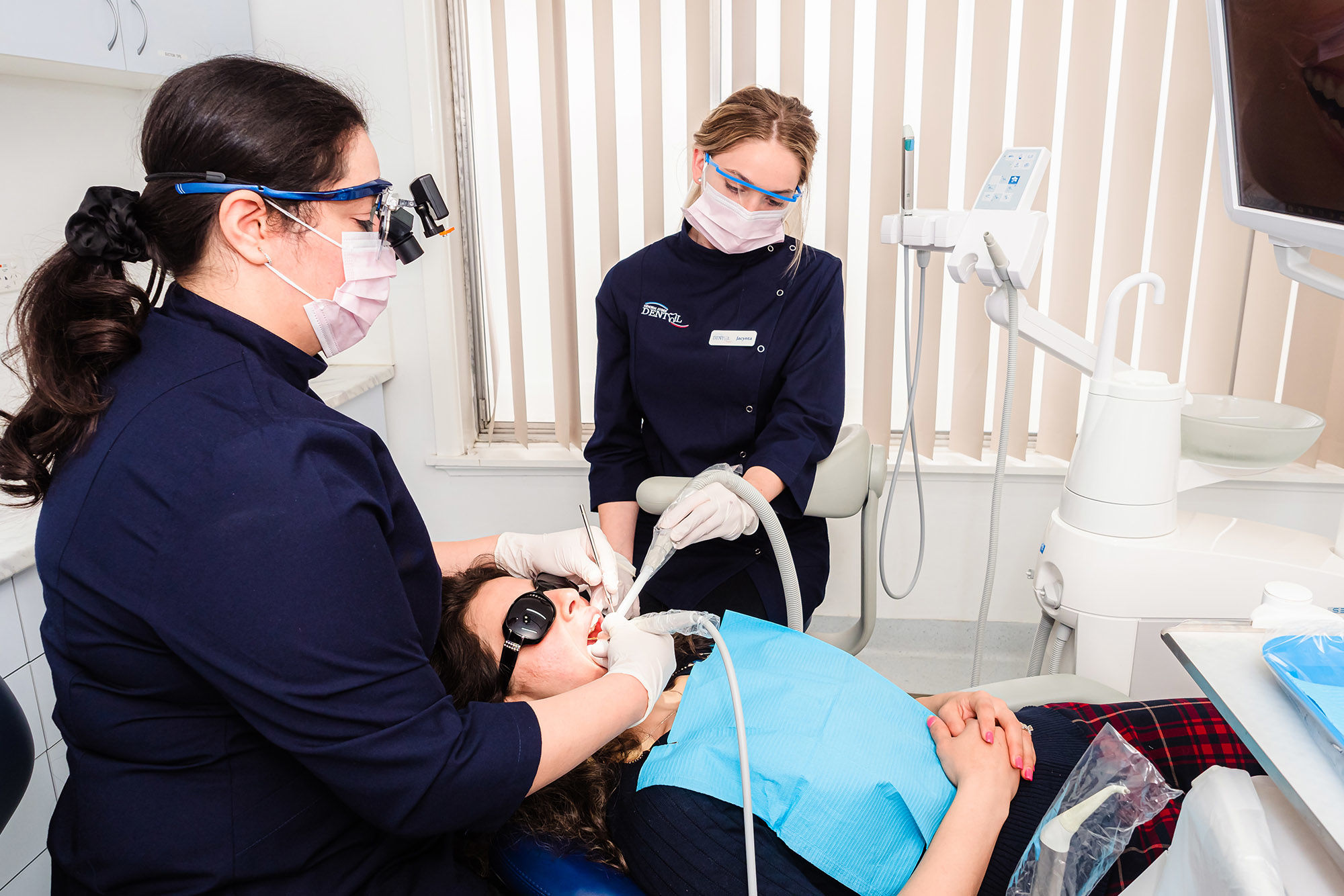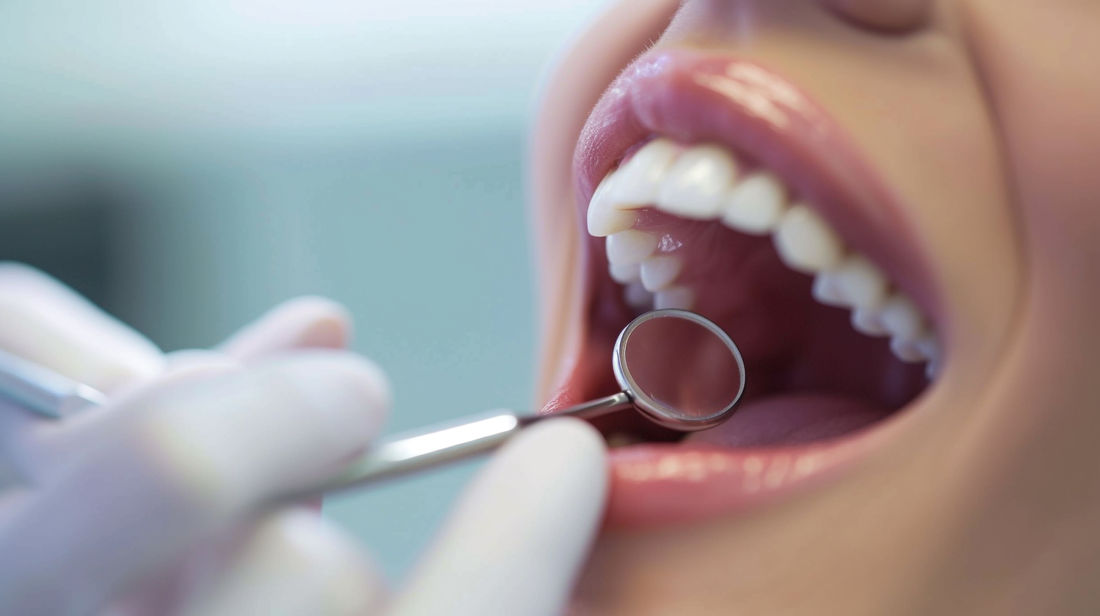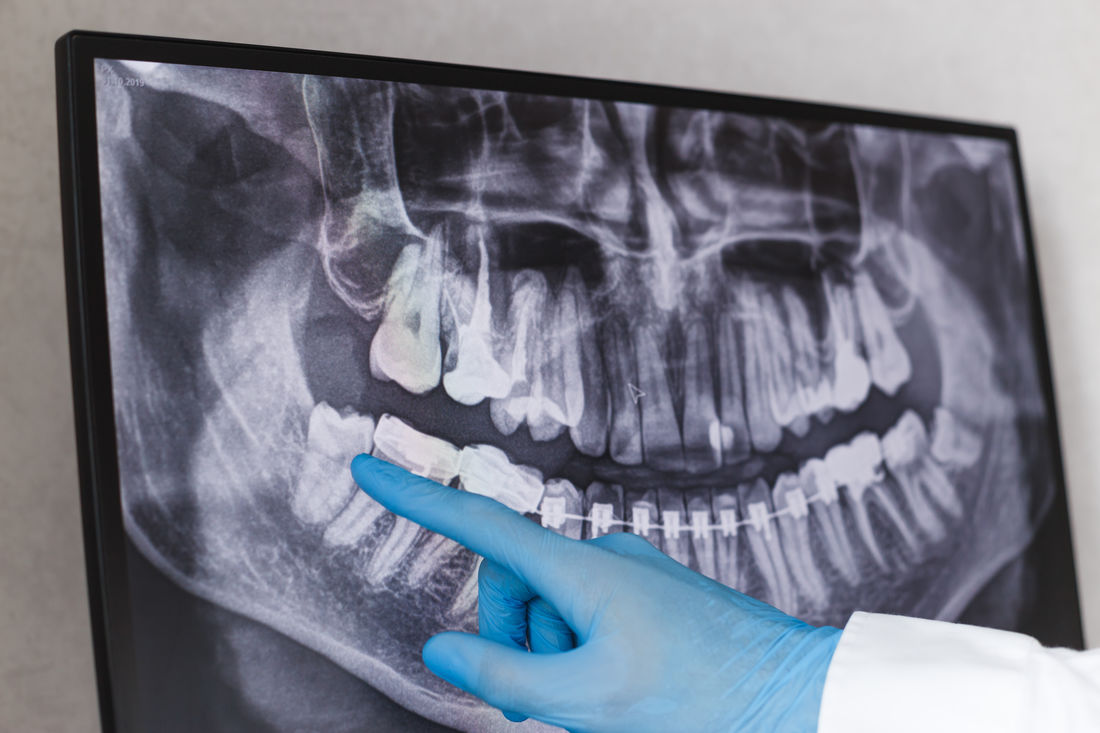Fillings/RestorationsFillings are often the first line of treatment when dealing with tooth decay.
Your dentist will examine your teeth & use the digital x-rays to locate & evaluate the extent of the decay & will discuss with you whether a restorative treatment is required or not and will recommend you the best options and an excellent care which are our number one priorities.
The most commonly used white fillings are the composite resin ones (white or tooth colored fillings). We use the most advanced white composite resin that bonds to the tooth. We use materials of various natural shades to match the appearance of the tooth to blend into the surrounding teeth. You won’t even know you have had a filling. Because it bonds to the tooth, the drilling is minimal.
We also use glass ionomer cement (silicon based cement) that can release fluoride to the surrounding tooth structure either as a filling material in baby teeth or for root decay or as a base under the composite resin fillings. When a tooth is severely damaged, indirect lab-fabricated white inlay or onlay fillings, or full coverage crowns may be needed in this technique, the dentist may need to take an impression.
Then the inlay, onlay or crown will be fabricated in the lab using different materials such as porcelain, gold, platinum, tooth color composite resins and so on. Then the restoration will be fitted on the tooth in a separate visit. |  |
 | Root Canal treatmentsRoot canal treatment is a dental procedure that involves the complete removal of the nerve tissues inside the infected tooth to eliminate infection and pain.
Our dentists use the latest modern rotary equipment to thoroughly clean and shape the root canals and to remove bacteria, pus and debris. The infection-free root canal is then sealed with long-lasting barrier materials (the root filling).
The tooth then undergoes restoration and the biting surfaces need protection – an artificial biting surface for the tooth is fashioned out of regular filling material. In many cases, where there is considerable loss of the tooth structure, there may be a need for an artificial crown made from porcelain or gold alloy or other materials.
Success rates for endodontic treatment are generally good.
Most of the patients who undergo root canal treatment can expect a functional tooth after the treatment. The treated tooth should last a very long time, provided that you maintain good oral hygiene and the tooth is supported with a cap/crown. |
ExtractionsDental Extraction is the removal of a tooth from the mouth.
Teeth might need to be extracted if:
Our aim is to always perform every possible treatment to keep your teeth functioning, therefore in your appointment your dentist will examine your tooth and explain the reasons why it needs to be extracted; an x-ray will be taken to help planning the best way to remove the tooth.
Our dentists are dedicated to the gentle and safe procedure of tooth extractions; this is generally performed under local anaesthetic after applying a numbing paste on the gum. |  |
 | Surgical Extractions of Wisdom teethWisdom teeth are the teeth at the back of your mouth (the third molar teeth). They tend to come through (erupt) in the late teens or twenties. Some wisdom teeth do not come through fully (partly erupt) and get stuck (impacted).
They are so far back that keeping them clean becomes a problem and they are therefore susceptible to decay.
We do not always extract wisdom teeth, even if they are not fully erupted, we only extract if: tooth has developed decay, repeated or severe infection, to make space to move other teeth or to prevent damage to the other teeth, cheek or gum.
Wisdom teeth can be quite difficult to extract, and in most cases, require a minor surgical procedure so that there is no damage to the alveolar nerve (the nerve that supplies feeling to the lower jaw) or to the sinus walls. Most complicated wisdom teeth extractions are performed under general anesthetic. |
Periodontal /gum disease treatmentsMost people will have gum disease at some time in their life. Some of the common signs of gum disease are gums that are red, puffy or bleed.
Periodontal disease or gum disease starts with bacterial growth in your mouth and lack of proper treatment may lead to further complicated problems. Gum disease is the main reason for tooth loss and it is common in adults however most people are not aware of the disease due to being painless in the early stages.
According to latest researches; there may be a connection between periodontal disease and other diseases such as stroke, diabetes, cardiovascular disease, and increased risk during pregnancy.
The two main stages of gum disease are:
The signs of gingivitis are:
The signs of periodontitis include:
Getting treatment early can help stop the progression of the gum disease. |  |
 | DenturesDentures are a removable replacement for missing teeth. They are fabricated using either acrylic or cobalt chrome to which false teeth are added. Dentures can enhance your smile and improve chewing and speech, add support to your lips and chin.
Types of dentures;
We can make denture with tooth coloured clasps so you won’t be able to tell the false from the real teeth.
Implant retained dentures are a fixed and permanent option.
Implants (titanium screws) are placed in selected areas of the jaw to act as anchors and a permanent denture is then attached onto these implants.
Dentures will last many years, however in time may need to be repaired or readjusted due to normal wear. |
